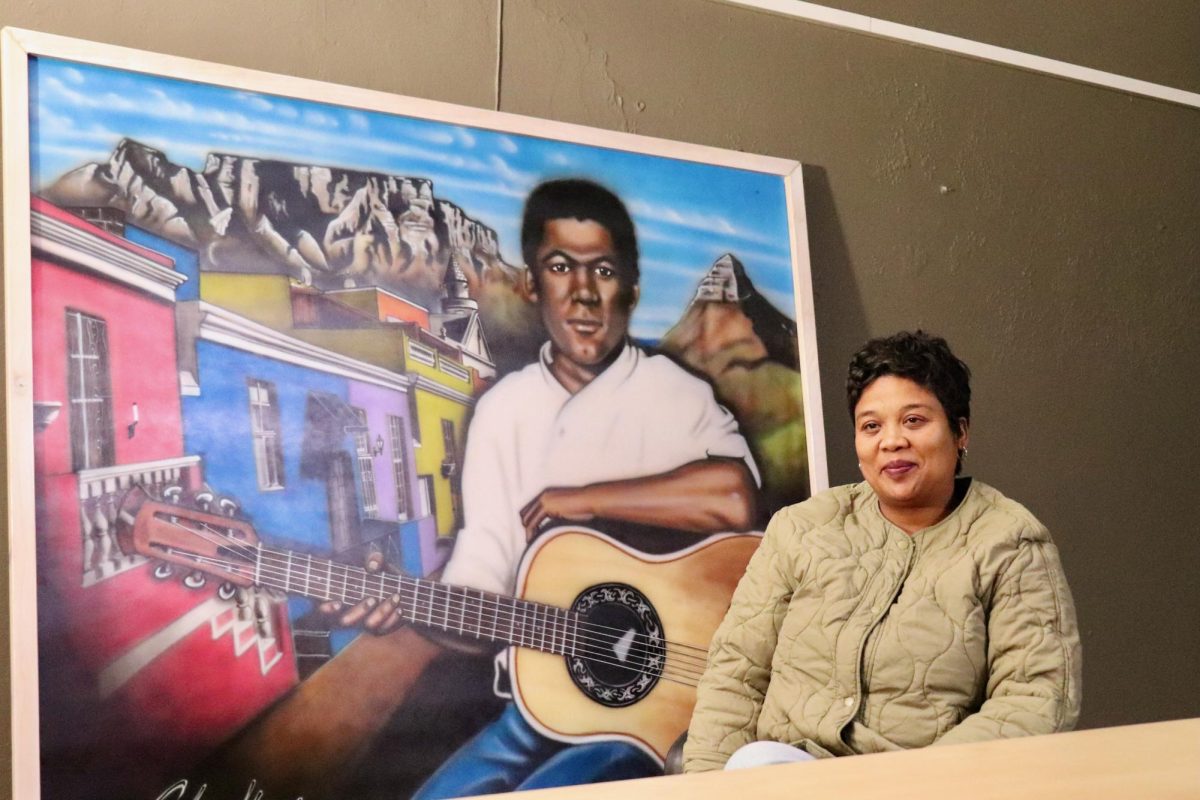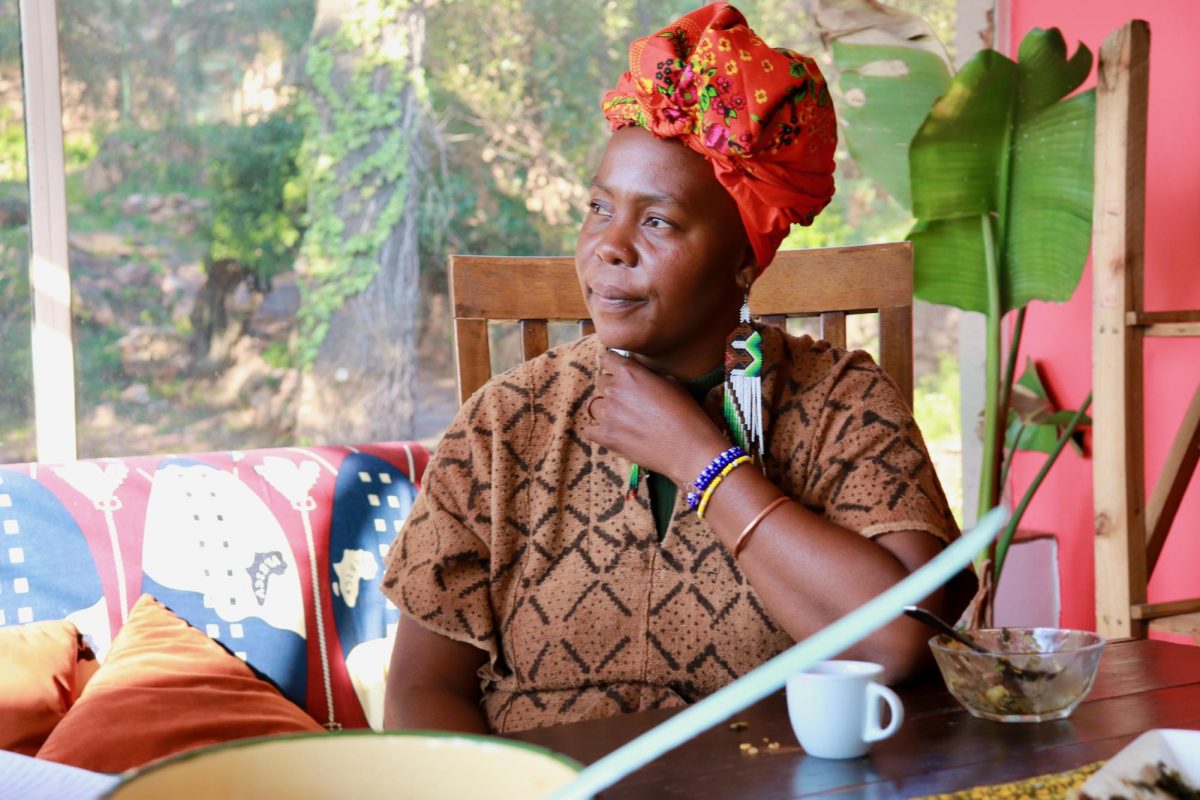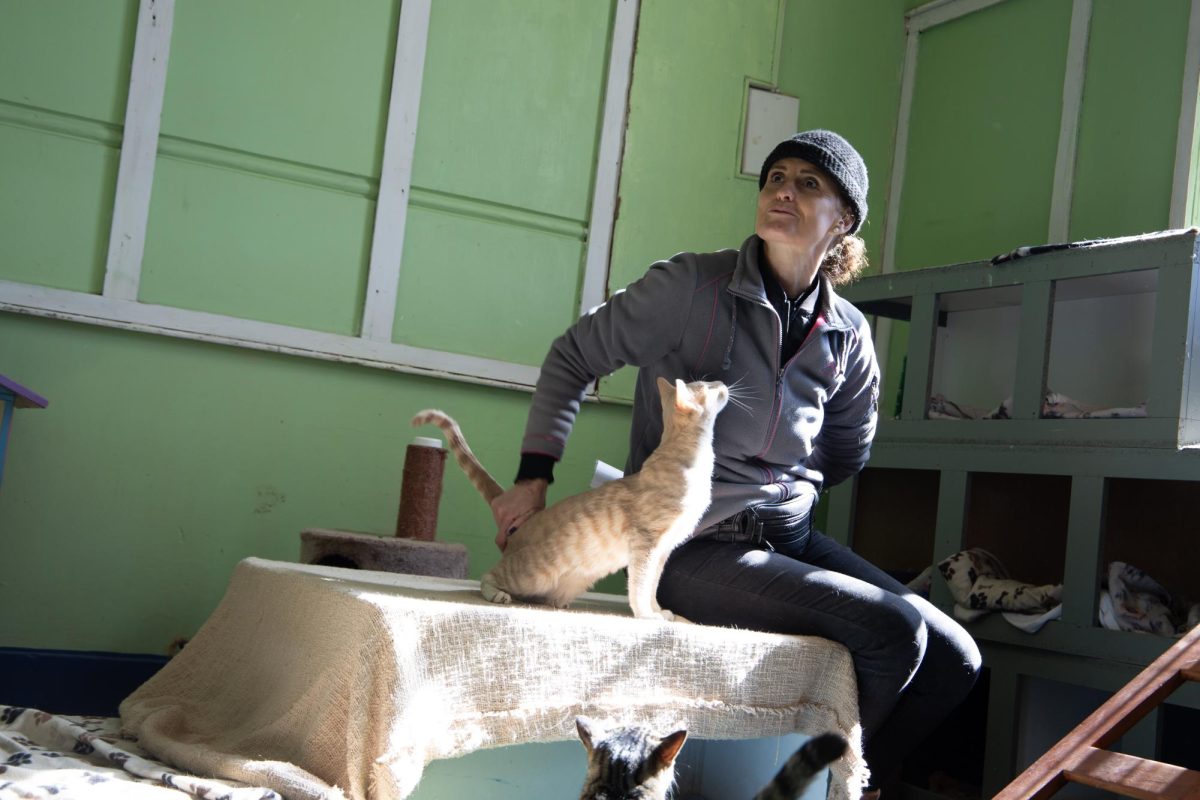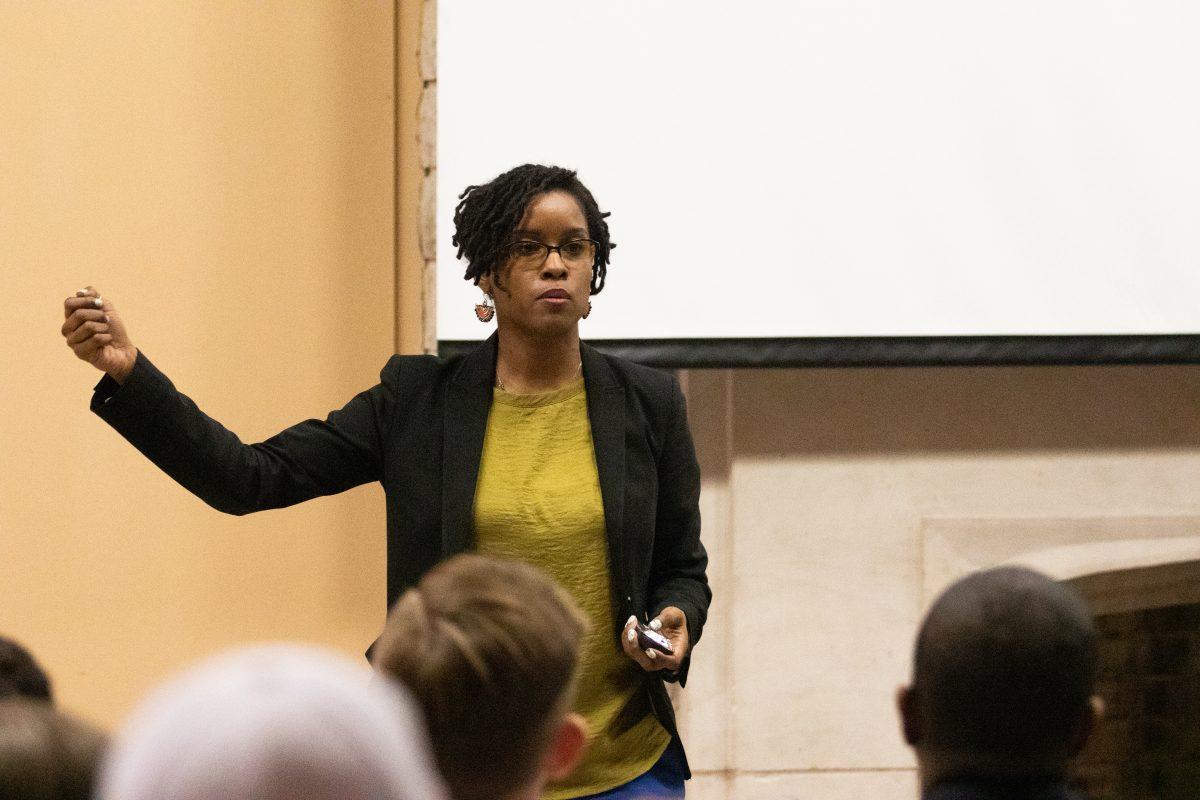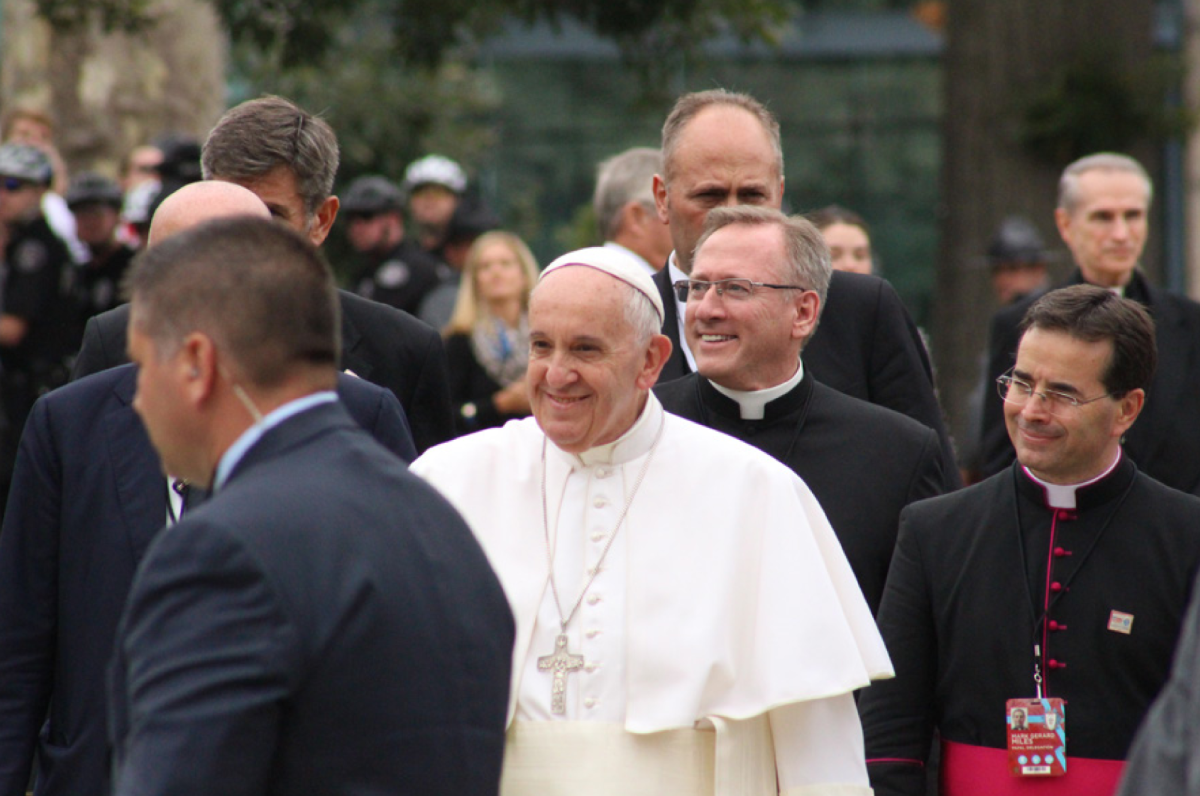Bowman Lecture Series speaker notes lack of statistics
Human trafficking is significantly underestimated in the U.S., according to Dr. Makini Chisholm-Straker, M.D., one of two guest speakers at the annual Bowman Lecture Series, which took place Feb. 13 in the North Lounge of Campion Student Center.
Chisholm-Straker is the co-founder of HEAL Trafficking (Health, Education, Advocacy, Linkage), a group established in 2005.
Human trafficking is the recruitment, harboring, transportation, provision and/or obtaining of somebody by force, fraud and/ or coercion for labor exploitation and/or sexual exploitation. In order for someone to be considered a victim of human trafficking, they need to meet the criteria in the federal definition, according to Chisholm-Straker.
Chisholm-Straker said official statistics do not account for people who were born in the U.S., people who were smuggled in or people who came to the U.S. on a visa and then got trafficked.
“That number probably is an underestimate because that was only how many people were coming in annually,” Chisholm-Straker said. “I think we should all care about traffick- ing because we’re all responsible for it.”
Data from Polaris, a national non- profit that runs an anti-trafficking hotline, indicates that more than 5,000 human trafficking cases were reported in the first half of 2018, compared to 8,524 reported cases in 2017.
Chisholm-Straker said her work as an emergency room doctor brought her into contact with human trafficking.
“I started doing anti-trafficking work [when] I was a medical student, and it looked like me listening to and learning from survivors of trafficking,” Chisholm-Straker said. “At that time most of the anti-trafficking movement was advocates, people who were working with survivors directly and law enforcement.”
According to the national human trafficking hotline run by Polaris, 127 human trafficking cases were reported in Philadelphia in the first half of 2018, of which 106 were sex trafficking cases.
Panelist Monica Charleston grew up in North Philadelphia and created an organization called Kaleidoscope International to advocate for children and women who have been victims of human and sex trafficking. Charleston said when she was young she was trafficked for eight years.
“There is definitely a problem [of human trafficking] in Philadelphia, there’s problem everywhere, but there’s definitely problems in big cities,” Charleston said. “Anyone can become a victim of human trafficking.”
Elaine Terry, Ph.D., organizer and founder of the lecture series and assistant professor of mathematics, said the lecture series was named after Thea Bowman, a nun who was the first African-American woman to receive a doctorate in theology from Boston College in 1988.
Terry introduced Chisholm-Straker before the lecture began.
“The series is important because we’re a [white] majority institution, and I think that many of our students don’t have experience with people who are different than themselves,” Terry said.
Chisholm-Straker said the co-founders of HEAL Trafficking want to shift the anti-trafficking movement’s approach to the larger problems with human trafficking.
“We wanted to expand it from one that is law enforcement focused to one that is rooted in public health principles so we are not just trying to arrest the problem away,” Chisholm-Straker said.

Jared Martinez ’19, who attended the lecture, said he is currently working on his senior thesis research and found that the challenges with combating human trafficking stem from the general public’s overall lack of knowledge about human trafficking.
“In my research, I also found that one reason why there is a lack of general knowledge is because human trafficking is constantly changing and evolving,” Martinez said. “It takes seven or eight times for many victims to escape.”
Charleston said she spends her life advocating for victims of human trafficking and shares her story in hopes of educating people on the reality of human trafficking.
“There is life after trafficking,” Charleston said.
National Human Trafficking Hotline: +1 (888) 373-7888



















